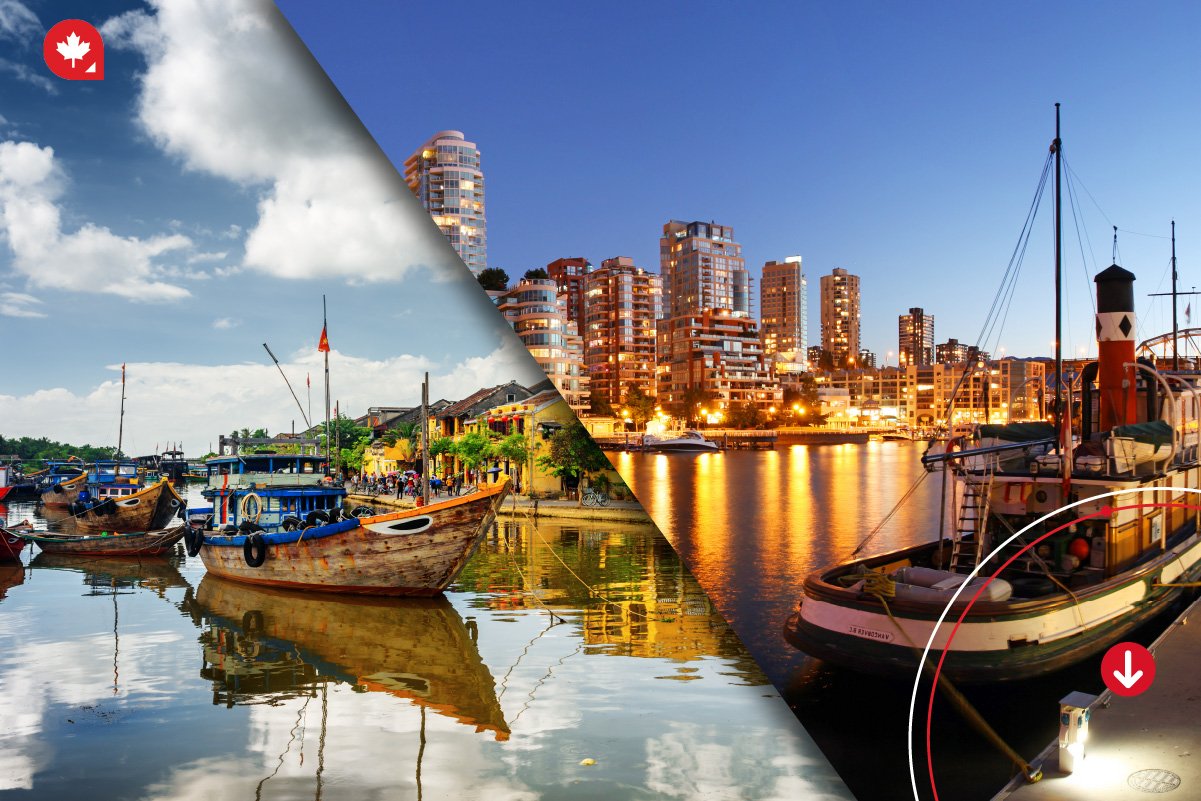Are you considering a move to Canada from Vietnam? If so, you've come to the right place! Canada is one of the world's most diverse and welcoming countries and offers a wide range of immigration options for people from Vietnam. In this blog, we'll explore how you can immigrate to Canada from Vietnam and what to expect once you arrive. Let's get started!
Canada has always been an attractive destination for immigrants worldwide, and Vietnam is no exception. As a result, Canada has seen a surge in immigration from Vietnam in recent years, with over 275,500 people from Vietnam living in Canada as of the Canadian 2021 census. With its open immigration policies and welcoming attitude towards newcomers, Canada is the perfect destination for Vietnamese people looking to start a new life.
Canadian Permanent Residency Programs

If you want to make Canada your home for the rest of your life, several permanent residency programs can help you take that leap. They are as follows:
The Express Entry System
The Express Entry System has been Canada's most efficient and successful immigration system since 2015. This program grants permanent residency status to people from Vietnam who meet specific criteria. This status allows you to live and work in Canada without any restrictions. In addition, it gives you access to many benefits Canadian citizens enjoy, such as health care and education.
Managing three federal economic immigration programs, the Express Entry (EE) system helps skilled foreign workers find their pathway to Canada in as little as six months. These three programs are as follows:
- The Federal Skilled Worker Program (FSWP)
- This program is specifically for foreign nationals working in an occupation that generally requires a degree, like a software developer, doctor or lawyer.
- The Federal Skilled Trades Program (FSTP)
- This program was created to help skilled trade workers like electricians, butchers, or plumbers immigrate to Canada.
- The Canadian Experience Class (CEC)
- This program is for applicants who have worked in Canada for at least one year as well as meet the general requirements of the Express Entry System.
To apply for this program, you must create an Express Entry Profile on the Canadian government site. When you create this profile, you will enter certain qualifying information like your:
- Age
- Marital Status
- Qualifications
- Work Experience, and
- Connections to Canada.
These factors are scored via the Comprehensive Ranking System (CRS) to produce a CRS score. Here's a full breakdown of the CRS scoring factors.
These scores are then placed into an Express Entry pool. Every two weeks, the Canadian government holds an Express Entry draw, where the most eligible applicants receive an Invitation to Apply (ITA) for permanent residence in Canada.
Applicants have 60 days to submit their corroborating documentation and complete their application. Once their application is processed, they will receive their permanent residence card.
Provincial Nominee Programs
The Provincial Nominee Program (PNP) helps international workers who are qualified and experienced in specifically in-demand job sectors of 13 of Canada's provinces and territories.
You can apply directly to your chosen province or via the Express Entry System by creating an Expression of Interest (EOI) in a specific province when you create your Express Entry profile. Each province has several PNP streams based on the different needs of each province. If your skills are needed in your chosen province, you will likely receive a provincial nomination for permanent residency. A provincial nomination can add up to 600 points to your CRS score, guaranteeing you receive an ITA at the next Express Entry Draw.
An excellent way to determine if your skills are required in your chosen province is to see which jobs are currently in demand in each province. This map shows each province's in-demand occupations to help you find where you're needed most.
Find out more about Canada's PNPs and how to apply here.
Family Sponsorship Programs
If you have a spouse, partner or close relative living in Canada, they may be able to sponsor your permanent residence, provided they are:
- Over the age of 18
- Either a Canadian citizen or permanent resident
- In possession of sufficient funds to take care of you while in Canada.
Several family sponsorship programs are based on your relationship with your sponsor. These include:
- Spousal and family sponsorships
- Parents and Grandparents sponsorships, and
- Close relative sponsorships.
Find out more about the family sponsorship programs and how to apply here.
Types of Visas

If you don't fulfill all of the eligibility requirements for a permanent residency program or are looking to move to Canada for a fixed period, a good place to start is with a visa. While a visa will only allow you a few benefits of permanent residency, it's a fantastic way to get your start in Canada and help you become eligible for programs like the CEC. Here are just a few of Canada's visa options.
Start-Up Visa
This visa is designed for entrepreneurs who want to start a business in Canada. This has stringent requirements for you as an applicant and for the enterprise you intend on starting in Canada.
Learn more about Canada's start-up visa program, the eligibility requirements, and how to apply here.
Work Visa
If you're looking to start in the booming Canadian job market, you need a Canadian work visa. To be eligible for a work visa, you need a valid job offer from a designated Canadian employer to be admissible to Canada.
Here's a full breakdown of the eligibility requirements and application process for a Canadian work visa.
Student Visa
A Canadian Student Visa allows Vietnamese students to study in Canada.
You'll need to meet specific requirements to apply for a Canadian visa from Vietnam. These include
- A valid passport from Vietnam
- Evidence of sufficient funds to support yourself and any dependents
- A valid job offer from a Canadian employer (if applicable), or
- A letter of acceptance from a Canadian DLI.
You'll also need to provide documents that prove your identities, such as a birth certificate or national identity card.
Benefits of Immigrating to Canada

There are many benefits to immigrating to Canada from Vietnam. These include:
Access To World-Class Healthcare And Education
Canada is home to some of the world's best public healthcare and educational institutions. As a permanent resident, you'll have access to these services.
Economic Opportunities
Canada's booming economy offers many opportunities for people to find work and earn a good living.
Cultural Diversity
Canada is a melting pot of cultures, and as a permanent resident, you'll have the opportunity to experience and explore different cultures.
According to the Canadian 2021 Census, the Asian population in Canada was estimated to be over 20% of Canada's total population. This population is made up of people from a variety of countries, including China, India, the Philippines, and Vietnam. As a result of this diversity, there are many vibrant and welcoming Asian communities in Canada.
Quality of Life
Canada is one of the best places in the world, with a high quality of life, a low crime rate, and welcoming people.
If you want to learn about more of the massive perks of life in Canada, here are a few more reasons why Canada could be the perfect place for you.
FAQs
When you arrive in Canada from Vietnam, there are many things to consider. Here are some frequently asked questions about what to expect:
What Language Is Most Commonly Spoken In Canada?
English and French are Canada's official languages, and most Canadians can speak both.
To be eligible for a Canadian visa or permanent residence, you will likely need to demonstrate proficiency in one of these languages. This is shown by your Canadian Language Benchmark (CLB), which is based on one of Canada's four major language tests.
How Long Does It Take To Become A Canadian Citizen?
It typically takes about three years for permanent residents to become citizens.
Find out more about what it takes to become a Canadian citizen here.
How Does The Cost Of Living In Canada Compare To that of Vietnam?
The cost of living in Canada tends to vary wildly depending on where you live and your lifestyle. However, to give you a better understanding of living expenses in Canada here's a full breakdown of Canada's cost of living.
Bring the East To The West

So, as you can see, there are many ways to move to Canada from Vietnam. Whether you're looking to start a new life, study, or join your family, there is an immigration program to suit your needs.




